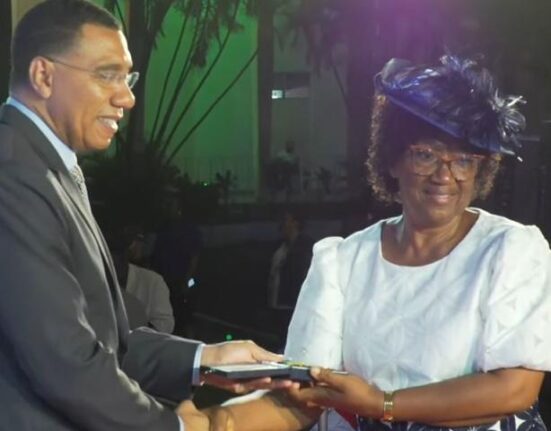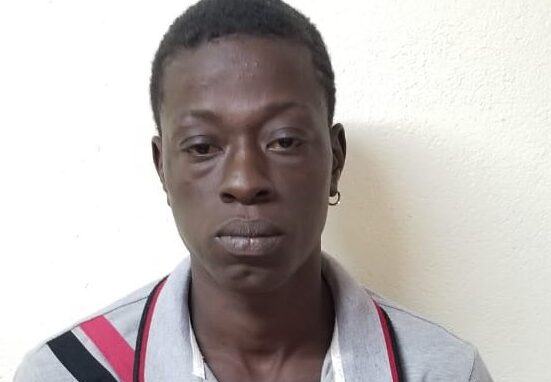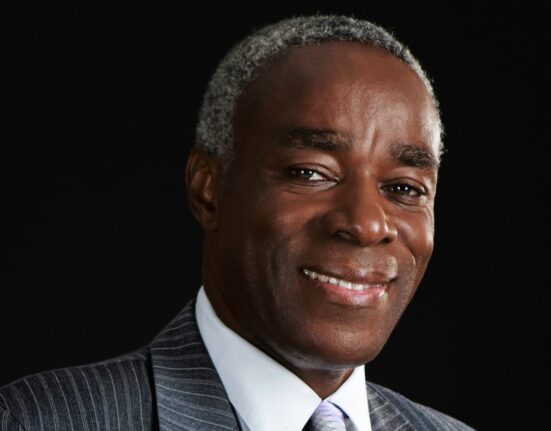FORMER ST ANN FESTIVAL QUEEN POINTS TO POWER, INFLUENCE OF DANCE HALL
OCHO RIOS, St Ann; Dec.6, 2024
Youth leader, Miss St Ann Festival Queen 2023 Ayoka Davis has called for dance hall music to be used to promote HIV prevention and safe sex practices.
Davis was speaking during the 15th sitting of the National Youth Parliament of Jamaica, at Gordon House on Monday November 25, 2024. Seventy young people were selected to sit in the National Youth Parliament. Twenty (20) were selected to speak, excluding the Prime Minister and Opposition Leader.
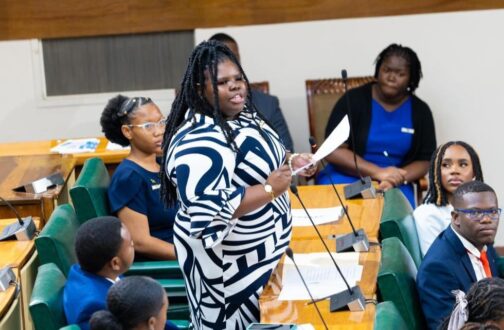
(Ayoka Davis making her presentation on how dancehall music can be used to great health effects.)
Davis, a teacher, represented Northeastern St. Ann and was deputy spokesperson for the Ministry of Foreign Affairs and Trade

She emphasized that incorporating educational content into dancehall lyrics and performances could not only raise awareness but also reduce the stigma surrounding HIV.

In her speech, Davis highlighted the powerful role that dancehall plays in shaping Jamaican youth culture and its potential as a tool for positive social change. She pointed out that the genre reaches millions, especially young people, and could serve as an effective medium to spread crucial health messages.
She cited Ministry of Health and Wellness reports that 26,000 people in Jamaica are living with HIV and about 15,000 are receiving treatment.
She said: “It is indisputable that dancehall music encourages unrestrained sexual behaviors. The lyrics promote the idea that extensive sexual engagement, often through unprotected means, is a mark of sexual prowess, contradicting established safe sex practices. Apparently we fi Kick off e boots. We say no to that mukkins!”
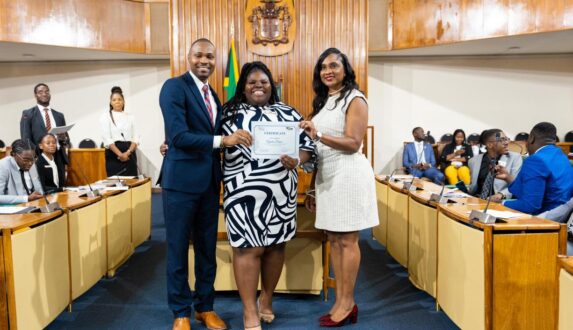
(Ayoka Davis, Youth Parliamentarian is flanked by Orville Levy Co-chair, National Youth Advisory Council of Jamaica, Orville Levy and Yanique Williams Acting Senior Director of the Youth and Adolescents Policy Division, Ministry of Education, Skills, Youth)
Davis said that mindset leads young listeners to glorify and embrace explorative sexual activities without understanding the risks of HIV and other sexually transmitted infections.
“The normalization of multiple sexual partners and unprotected sex in dancehall heightens this risk, as shown by a study from Caribbean Journal of Cultural Studies, which found that young women often emulate the behaviors they hear in these songs while neglecting HIV prevention,” she said.
The Youth Parliamentarian said to tackle HIV among youth, particularly in the context of dancehall culture, she recommended “The Dancehall Health Empowerment and HIV Prevention Policy.”
She proposed several policy recommendations, including:
- Collaborating with Dancehall Artists: Partner with artists to integrate HIV prevention messages into songs, music videos, and performances.
- HIV Education in Music Programmes: Develop educational initiatives for artists and producers on HIV prevention and sexual health.
- Community Workshops: Organize outreach programs led by health professionals to engage young people in HIV prevention discussions.
- Incentives for Positive Content: Provide financial incentives for artists who promote HIV education through their music.
- Using Media: Strengthen media campaigns to spread HIV prevention messages through dancehall content.
Davis said her call for action highlights her commitment to addressing Jamaica’s health challenges by engaging young people through music and culture.
Ifenie Grant Photos




